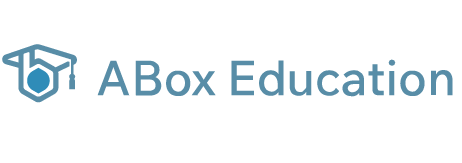Top 10 News in U.S. Education: Funding Cuts, Immigration Policies, and Campus Activism
- Apr 16, 2025
- 4 min read
Harvard Faces $2.2 Billion in Funding Cuts Over Political Activism and Campus Policies
Source: PBS News
The Trump administration’s decision to freeze $2.2 billion in federal funding for Harvard University due to concerns over student activism and the university’s diversity programs marks a significant shift in U.S. higher education policy. This move affects a variety of university programs, including resources for international students, and may set a precedent for how U.S. universities navigate federal scrutiny in the future. For Chinese students considering studying in the U.S., this raises concerns about the stability of funding and the political environment in which universities operate.
Columbia University Graduate Student Faces Deportation Over Protests
Source: Diverse Education
Columbia University graduate student Mahmoud Khalil is facing deportation due to his involvement in pro-Palestinian activism on campus. This case raises significant concerns about free speech and the rights of international students to participate in political activism without facing severe consequences, including deportation. For Chinese students considering political engagement in the U.S., this situation underscores the increasing risks associated with activism on campus.
Federal Funding Restored to Maine After Dispute Over Transgender Athletes’ Rights
Source: NPR
A federal judge has ruled in favor of Maine, restoring federal funding that had been withheld due to the state’s policies on transgender athletes. This decision underscores the ongoing debate between federal and state control over education policies, particularly regarding the rights of transgender students. For international students, this highlights the complex legal landscape that could affect both the safety and rights of marginalized student groups.
Trump Administration Threatens Harvard with Loss of Tax-Exempt Status
Source: USA Today
President Trump has threatened to revoke Harvard University’s tax-exempt status as part of a broader effort to challenge the university’s stance on diversity and free speech. The potential consequences of this threat could significantly impact the financial stability of Harvard and other elite universities. For international students, this raises concerns about the broader political pressures affecting academic institutions and the potential risks associated with studying at these universities.
Trump Administration Proposes Sweeping Changes to Higher Education System
Source: Inside Higher Ed
The Trump administration is pursuing aggressive reforms to higher education, focusing on diversity initiatives, student loans, and even the potential dismantling of the Department of Education. These reforms could lead to increased government oversight and could significantly affect domestic and international students' experience. For Chinese families, understanding these shifts is crucial as they might affect financial aid, university admissions, and the availability of certain academic programs.

Credit: Higher Ed Drive Department of Education Faces Scrutiny Amid Major Layoffs and Staff Reductions
Source: Inside Higher Ed
Major staff reductions in the Department of Education’s Office for Civil Rights (OCR) are raising concerns about its ability to effectively address complaints of discrimination in U.S. schools. The cuts will likely slow down investigations and responses to discrimination cases, which could affect international students dealing with campus discrimination. This reduction in federal support could create a less effective system for addressing students' concerns about inequality and discrimination.
Universities Urged to Strengthen Academic Leadership Amid Pressure to Cut Costs
Source: Inside Higher Ed
The success of universities is increasingly tied to strong academic leadership, particularly by deans who oversee academic programs. As universities face pressure to cut costs and maintain enrollment, it is crucial to support deans with resources, training, and collaborative efforts to adapt to these challenges. For international students, this could directly impact their educational experience, as leadership at the university level plays a key role in shaping academic opportunities and programs.
NIH Appeals Funding Cap for Research Costs in Universities
Source: Inside Higher Ed
The National Institutes of Health (NIH) is appealing a court decision that blocked its plan to cap funding for indirect research costs at universities. The proposal, if implemented, would affect funding for research initiatives, particularly in medical and scientific fields. This change could lead to increased costs for students in research programs and might influence the types of research opportunities available at U.S. universities, potentially affecting both domestic and international students in STEM fields.
Diversity in Faculty Leadership Essential for Stronger Academic Inquiry
Source: AEI
University leaders are increasingly recognizing the need for diverse viewpoints within faculty ranks to foster academic inquiry. By broadening the diversity of their faculty, universities can enhance intellectual debates and create a more inclusive environment. For international students, this trend could lead to a more welcoming atmosphere that supports diverse perspectives and encourages global collaboration.
ChatGPT Plus Now Free for College Students in the U.S. and Canada
Source: College News
OpenAI has launched an initiative to offer free ChatGPT Plus subscriptions to college students in the U.S. and Canada, providing access to advanced AI tools like GPT-4 and image generation. This initiative is aimed at supporting students during busy academic periods like finals and promoting equal access to AI-powered learning tools. This move could enhance the learning experience for international students, who will now have access to cutting-edge AI tools to assist in their studies.
Conclusion: The landscape of U.S. higher education is undergoing significant changes driven by political, financial, and technological factors. The articles above provide insight into how government policies, university funding cuts, changes in academic leadership, and emerging technologies like AI are influencing both domestic and international students. For Chinese students considering studying in the U.S., understanding these trends is crucial for making informed decisions about their education and future prospects.




Comments